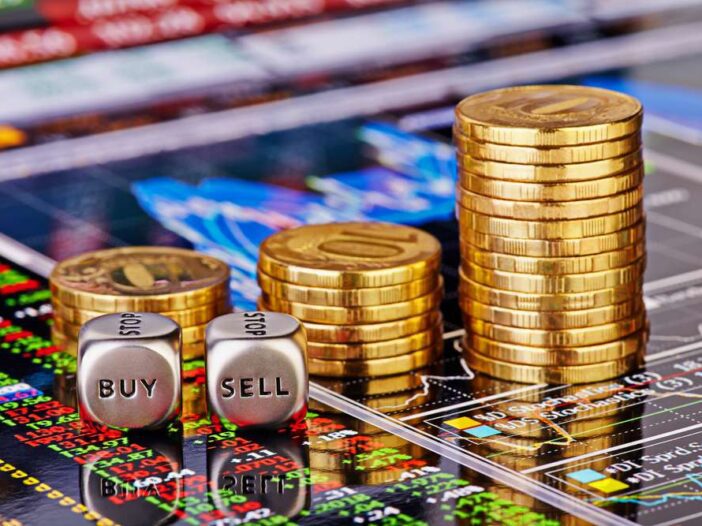Dear Reader,
It’s one of life’s great mysteries. The ultimate question of investing, the stock market and everything, you might say. And the answer may even be 42!
But what is the question?
Luckily for you, I have the answer…the question: How far-sighted is the stock market?
You see, financial markets are supposed to price in the future rather than the present.
This leads to a great deal of confusion, in practice.
For example, good news can be less good than expected, causing stocks to fall.
Or bad news can mean that monetary policy will be loosened in the future, which will be good for stocks, and so they go up.
Each time, the stock market reacted the opposite way to what the newsreader expected given the data, requiring a finance correspondent to explain it away. Good news made stocks fall and bad made them go up. It’s enough to keep most rational beings away from investing.
As for the rest of us…
No doubt you’re sceptical about the general idea, though. Are financial markets really far-sighted? I mean, aren’t they a bit too volatile for that?
Why do crashes and spikes happen if an all-wise stock market is an accurate depiction of our fate?
Well, nobody is saying that it’s any good at predicting the future, just that it tries. The future is where today’s prices are set, rightly or wrongly.
Besides, the real world is volatile itself. Events that are difficult to foresee do happen, such as pandemics and the failure to bail out a systemically important investment bank after having created the expectation that it would be bailed out. (Financial markets, like most beings, find politicians perplexing.)
So being far-sighted doesn’t mean you correctly anticipate what’s coming, it just means that you react to what you think you see coming in the more or less distant future, rather than what’s going on in the present.
Or, more correctly, it means that you expect something and react to how that something differs to what actually happens, rather than just reacting to what’s happening now without any context.
Although you can twist all this logic on its head and claim that the stock market’s recent performance can be used to predict the future, this is a bit of a cart-before-the-ass problem.
It’s not just that stock markets can be wrong. Anticipating/expecting something and predicting it are two different things.
For example, markets can predict a variety of outcomes while assigning probabilities to them. Markets might think the probability of a recession is rising, and so stocks fall a little. But they would still fall further as the recession hits, or they would recover as the fears prove unfounded. Stock prices reflect the uncertainty of both outcomes being possible.
Such probabilistic thinking is tough to analyse, though. Because so many outcomes never happened. But they might’ve…
All this is interesting…for a while. But the real question facing investors in all this is: How far ahead do markets look, and how often they are right? But let’s focus on the former.
You see, markets move in cycles. Financial crises, booms, bubbles, and monetary policy shenanigans all happen. Even pandemics can occur, sometimes.
So which part of the cycle does the stock market have its eye on today?
Well, the stock market is probably not pricing in the pandemic of 2120, yet, just as it didn’t price in the pandemic of 2020 or 1920. But if you knew when that pandemic would be reflected in the market price, then you’d be onto a winner!
So how far ahead does the stock market look in practice? What time frame should investors have in their minds when they try to get one step ahead of the herd?
It’s a tough question given the cyclical nature of things in financial markets. Stocks might be pricing in what happens next, the monetary policy response to what happens next, or whatever happens after that…
But let’s get some data anecdotes. Consider this from Bloomberg:
‘Hilton Worldwide has performed virtually identically to Zoom since February 2020, which was the pre-pandemic peak for the overall market.’
That’s a bit of a misunderstanding. As of recently, the two stocks have ended up delivering the same return since February 2020. But how they got there couldn’t be more different. Just ask a shareholder in each.
The stock market got caught out by the pandemic, of course. Zoom boomed while hotel business Hilton busted. But since then, Zoom has trended down, and Hilton trundled along higher after the initial crash.
Here’s the point: the market began to look ahead to a post-pandemic world, even during the height of the pandemic. Quite early on, in fact.
These days, Florida is claiming its tourism in 2021 was higher than it was in 2019. So it seems the market was onto something.
To expose how today’s Daily Reckoning Australia might be unusually useful to you in the future, let me ask you this: Which stock is a better investment during a pandemic? A hotel chain or a video conferencing company?
Not many investors would’ve chosen the former. And yet, once the pandemic kicked off and the stock market was busy pricing in the future and not the present, the hotel sector has outperformed…
So, unless you predicted the pandemic, then the right answer to the question of which stock to buy in a pandemic is hotel stocks…because the market is thinking about the future, not the present.
Then there’s this video from UnHerd, where Louis-Vincent Gave, founder of Gavekal, points out that the stock market seems to have been one step ahead of the vaccine makers when it comes to the efficacy of their ‘goods’.
Moderna’s share price fell badly before the rest of the world cottoned on to what’d happen in the likes of heavily vaccinated Israel. (Record COVID cases, hospitalisations, and deaths.)
So, while markets didn’t see COVID coming, they did a good job of evaluating the vaccines pretty early on.
Let’s turn to the future to try and explain recent stock market action (which hasn’t been very good). What are markets pricing in these days? Well, unless you know the future, it’s a little tough to figure that out…
Stocks could be pricing in tighter monetary policy, causing those companies exposed to too much debt or not enough earnings, to fall.
Or stocks could be pricing in the recession triggered by the higher rates, which would follow.
That’s what the bond market is increasingly signalling, anyway. But that’s another story for another day. Except to note that the bond market is considered to be a little better at pricing in the future than stocks. This might just mean it’s a little more foresighted than stocks — it looks further ahead.
Speaking of which, if you’re feeling as frustrated as I am about the gold price, all of the above might help explain our disappointment. You see, gold might be the most far-sighted asset of all.
The last two years have been a dream environment for gold. Inflation spiked, monetary policy remained loose despite this, real interest rates crashed off the charts and so on and so forth. But the gold price has fallen or trended sideways for 18 months, depending on how you like to do your technical analysis.
Why?
Well, just as gold hit all time highs in early 2020 as it priced in what’d happen these last 18 months, it has spent the last 18 months pricing in what happens next. The same tighter monetary policy which is only now sinking stocks.
But gold remains one step ahead. This week, it finally broke out of its 18-month trading range (to the upside). What is it pricing in now? The return to loose monetary policy because of the crash which the current interest rate hikes will trigger?
Maybe. But the point is that markets price in a future, however (in)accurately. The real question, if you want to get ahead of the herd, is: How far ahead do they look?
Until next time,
 |
Nickolai Hubble,
Editor, The Daily Reckoning Australia Weekend

